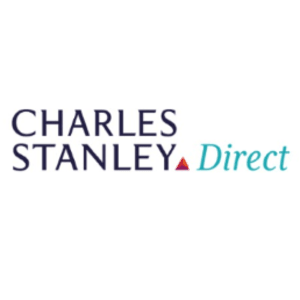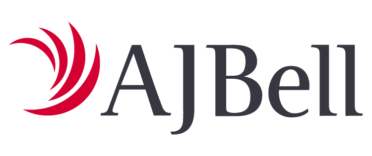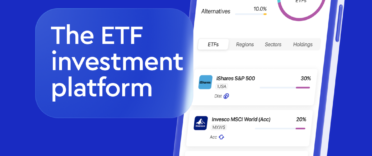 Charles Stanley* is one of the leading investment platforms in the UK. In this comprehensive Charles Stanley review I take a look at the products it offers, its charges and how it compares to other popular investment platforms including Interactive Investor* and Fidelity*.
Charles Stanley* is one of the leading investment platforms in the UK. In this comprehensive Charles Stanley review I take a look at the products it offers, its charges and how it compares to other popular investment platforms including Interactive Investor* and Fidelity*.
Who is Charles Stanley?
Charles Stanley & Co. is one of the oldest firms on the London Stock Exchange with its roots stretching as far back as 1792. Today Charles Stanley is one of the foremost investment companies in the UK offering a range of financial products and wealth management services to private clients, charities and small institutions.
Charles Stanley & Co. has around £24.9bn funds under management. To put this into context, the UK's largest investment platform, Hargreaves Lansdown, has around £142bn of assets under management. So while Charles Stanley isn't the largest online investment platform in the UK it certainly has a significant market share.
On the 21st January 2022 American wealth management firm Raymond James acquired Charles Stanley in a deal worth £278.9m. The deal brings Raymond James’ total client assets in the UK to just above £40bn and total assets under management to around £870bn.
Charles Stanley Offer - Up to £1,500 cashback
Get up to £1,500 cashback* when you transfer your cash and/or investments to Charles Stanley Direct. Minimum transfer £20,000. To be eligible for up to £1,500 cashback, transfer your cash and/or investments from another provider to a General Investment Account, ISA, Junior ISA or SIPP with Charles Stanley Direct Online Investing between 1st July 2024 to 31st December 2024. Terms and fees apply*. Capital at risk. To claim the offer you'll need to send Charles Stanley a secure Message through the website or app entitled “Cashback” at the time you request the transfer.
What can you invest in with Charles Stanley?
Charles Stanley is an award-winning online investment service offering both a professionally managed service as well as a DIY investment service aimed at investors who are happy to make their own investment decisions. For the purposes of this review, we will focus on Charles Stanley's DIY investment offering which gives access to an ISA, Junior ISA, SIPP and General Investment Account, with no minimum account value required.
Charles Stanley Stocks and Shares ISA
Investing in an ISA is a tax-efficient way of building up a lump sum for the future. Investments of up to £20,000 are free of capital gains tax and any further income tax.
The Charles Stanley Stocks and Shares ISA* is one of the few 'flexible' Stocks and Shares ISAs available in the UK. A flexible ISA allows you to withdraw money from your current tax year's Stocks and Shares ISA and replace it at a later date within the same tax year. So, if for example you had invested your full £20,000 ISA allowance into a Charles Stanley ISA and then withdrew £5,000 during the same tax year, you would have £5,000 of your ISA allowance still available if you wanted to top-up your investment later that tax year. With an ordinary, non-flexible, Stocks and Shares ISA (which most ISA providers offer) you could not replenish the £5,000 withdrawal in the aforementioned example.
Charles Stanley Junior ISA
The big advantage of investing for a child or grandchild via a Junior ISA is that you can invest up to £9,000 free of capital gains tax and any further income tax. When the child attains the age of 18 the proceeds of the Junior ISA are theirs to access or continue as a full ISA.
The Charles Stanley Junior ISA* is an award-winning Stocks and Shares Junior ISA, however, in our independent comparison of the Best Stock and Shares Junior ISA, we highlight some cheaper alternatives from providers including Fidelity*, Interactive Investor* and Hargreaves Lansdown*. This is because all of these providers do not charge a fee when investing for children.
However, if picking investments is not for you then Wealthify offers a Junior ISA account where it will manage your Junior ISA investments on your behalf and you can open an account from as little as £1.
Charles Stanley SIPP
The Charles Stanley SIPP* is a tax-efficient way to save for retirement with as little as £100 per month or a £500 lump sum. Any UK resident under the age of 75 may contribute and receive tax relief up to an annual contribution allowance of £60,000 or 100% of their earnings, whichever is lower. The Government will top up contributions with 20% basic rate tax relief. Higher rate taxpayers can claim back a further 20% through their tax return with additional rate taxpayers able to claim a further 25%.
Charles Stanley charges a SIPP fee of £100 + VAT, however, the fee is waived for those who have combined investments worth £30,000 or more. It means the Charles Stanley SIPP* is relatively cost-effective for those with larger pension pots, especially those who invest primarily in unit trusts.
Charles Stanley General Investment Account
Besides the ISAs and SIPP, Charles Stanley has a general investment account* that lets you invest outside of a tax-wrapper. As such, all income and capital gains are liable to taxation. Again, you can start investing with as little as £50 per month or a £500 lump sum. Trading fees are relatively expensive with Charles Stanley charging £4 for fund trades and £10 per trade for UK Stocks and Shares, ETFs, ETCs and Investment Trusts. Regular traders can offset some of these fees, however, as Charles Stanley applies a £50 trading credit every six months. If you are a high-frequency trader you may be better off looking at a trading platform or app, such as Freetrade* or Dodl*. If you are only interested in ETFs, then another alternative is InvestEngine as it doesn't charge any fees for buying, selling or holding any of its 610+ ETFs.
Charles Stanley's site isn't particularly pretty on the eye and quite text heavy in places but it does offer charting tools on a par with other investment platforms and also price alerts, limit orders, share watch lists and live price streaming. You can invest in shares, unit trusts, investment trusts, government bonds, corporate bonds and Venture Capital Trusts.
Overall the Charles Stanley trading account suits most investors who want to invest in unit trusts, ETFs and investment trusts. However, sophisticated investors wanting to trade frequently will find the trading costs expensive but also the lack of research and tools off-putting.
What fees does Charles Stanley charge?
In the table below we break down the fees you'll pay with Charles Stanley.
Charles Stanley platform fees
Charles Stanley charges a flat fee of 0.30% on all investments held across all account types. So, irrespective of whether you invest in funds, Exchange Traded Funds (ETFs), Investment Trusts, Gilts or Bonds and whether they are invested in a Stocks and Shares ISA, Junior ISA, SIPP or General Investment Account, you will pay 0.30% across everything you hold. It charges a minimum platform fee of £60 per year and a maximum platform fee of £600 per year.
| Charles Stanley Platform Fees | |
| Platform fee charged on all investment types | 0.30% |
| Minimum annual platform fee | £60 |
| Maximum annual platform fee | £600 |
Charles Stanley Trading fees
The following trading fees apply when trading via a Charles Stanley Stocks and Shares ISA, Junior ISA, SIPP or General Investment Account.
| Trade Type | Charles Stanley Trading Fee |
| Online fund trades (OEICs and Investment Trusts) | £4 |
| Online UK Stocks and Shares, ETFs, ETCs and Investment Trusts | £10 |
| Online International Shares | £10 + international charge (0.15%-1.00%) |
| UK Bonds and Gilts (Phone only) | 1% of the value of the trade (Minimum £25, Maximum £100) |
Charles Stanley Trading credits
Charles Stanley customers receive £50 worth of trading credits every six months. Credits are applied every April and October. No minimum account value is required. Unused trading credits expire at the end of every six-month period.
| Charles Stanley Trading Credits | |
| Trading credits (No minimum account value required) | £50 every six months (Credited in April and October) |
Charles Stanley Account administration fees
| Account Type | Account Fee |
| Stocks and Shares ISA | Free |
| Junior ISA | Free |
| General Investment Account | Free |
| SIPP | £100 + VAT - No charge if combined assets total more than £30,000 |
Charles Stanley Cash Savings Account
As well as investing, Charles Stanley allows customers to easily move money from one savings account to another via its cash savings account. It may be a good option for those who have short-term savings goals or those who are not ready to invest just yet. Options include an 'Easy Access' savings account, two notice accounts (35 and 45 days) as well as 3 fixed savings accounts (3, 12 and 24 months). The latest Charles Stanly cash savings rates are displayed in the table below.
| Account Type | Interest (AER) | Interest (Gross) |
| Easy access | 4.61% | 4.52% |
| 35-day notice | 4.91% | 4.79% |
| 45-day notice | 4.96% | 4.84% |
| 3-month fixed | 4.89% | 4.80% |
| 12-month fixed | 5.13% | 5.13% |
| 24-month fixed | 4.70% | 4.70% |
Interest rates correct as at 12.08.24
What other services does Charles Stanley offer?
As well as the DIY investment and savings products, Charles Stanley also offers a range of other services aimed at wealthier customers. These are listed below:
Charles Stanley Bespoke Investment Service
If a client wants to have freedom from making investment decisions then the Charles Stanley Discretionary Management Service can make those decisions on their behalf in line with the client's financial goals and risk profile. A minimum investment of £200,000 is required for this service.
Charles Stanley Advisory Investment Service
With the Charles Stanley Advisory Investment Service recommendations are made to clients on how to achieve their investment goals. The final decision on whether to act on any recommendations remains with the client. A minimum investment of £200,000 is required for this service.
Charles Stanley Foundation Portfolio Service
The Charles Stanley Personal Portfolio Service offers a range of 5 managed Charles Stanley funds. Each fund is built to meet a specific risk profile (so not bespoke to each client) and achieve a targeted return. Access to research and advice is available when required by the client. The minimum investment for this service is £20,000
Charles Stanley Tools and Features
Charles Stanley has a range of tools and features aimed at DIY investors, two of which we've highlighted below.
Charles Stanley Preferred List
Charles Stanley has a 'Preferred list' which is a list of 73 preferred funds across the major sectors, selected by Charles Stanley's in-house research team. It is akin to Hargreaves Lansdown's Wealth 50 list or the AJ Bell Favourite Funds list and is designed to help investors narrow down their search. The list can be filtered by investment type or sector and there is an option to include or exclude 'responsible' investments. Charles Stanley says the list is derived from 'detailed quantitative and qualitative analysis, which aims to highlight “best of breed” funds from across the major sectors in the context of their strategy and style'.
Charles Stanley Funds
Charles Stanley also offers one-fund solutions in the form of multi-asset funds. There are six funds in total, five of which focus on growth and one designed for income returns. The growth funds come in varying risk levels which aim to provide inflation-beating returns by investing in a range of assets, heavily focused on equities and bonds.
However, as the table below shows, the medium-risk multi-asset fund has only just outperformed the average of its peer group, which is not unusual for platforms' in-house funds. Personally, I would rather choose my own portfolio of funds, but if you are looking for a single fund solution then you may be better off considering a robo-advice proposition such as Wealthify or a passive solution such as those offered by Vanguard.
Charles Stanley Multi Asset Growth Fund Performance
| Name | 5 Year Return |
| Charles Stanley Multi Asset Growth | 23.90% |
| Mixed Investment 40-85% Shares sector average fund return | 22.94% |
Performance correct as at 12.08.24
Charles Stanley Alternatives
Charles Stanley can be relatively cost-effective, but there are cheaper alternatives, depending on the type of investor you are and the products you wish to invest in. We have highlighted two alternatives to Charles Stanley below and the scenarios in which you may wish to consider them.
Charles Stanley vs Interactive Investor
Interactive Investor* is the UK's second largest investment platform and it operates on a subscription model. Rather than charging a fee based on the percentage of a portfolio, investors pay a simple flat-fee monthly subscription. Those with less than £50,000 invested in a Stocks and Shares ISA will pay just £4.99 per month with Interactive Investor, meaning those investing more than £17,000 will save money when compared to Charles Stanley. Once you have more than £50,000 invested with Interactive Investor, the plan moves up to a more expensive subscription plan priced at £11.99 per month, however, this does include one free trade per month (usually charged at £3.99). This means as you invest more, it becomes more cost-effective to invest via Interactive Investor, compared to Charles Stanley. For example, if you were to invest £60,000 and place one chargeable trade each month, you would pay just £143.88 with Interactive Investor, compared to £200 with Charles Stanley. To take this further, if you were to invest £100,000, you would still pay £143.88 with Interactive Investor, but the fees for Charles Stanley would increase to £320.00.
If you are investing in a SIPP then Interactive Investor will likely work out cheaper no matter how much you have to invest. Charles Stanley charges a SIPP fee of £100 + VAT for those who have combined investments worth less than £30,000. This means that unless you have already built up a significant pot, you'll be paying a high administration fee. Interactive Investor charges a flat fee of just £5.99 per month for those with a pot less than £50,000, a fee that increases to £12.99 per month once you go over that amount. Trading fees for Stocks and Shares are significantly cheaper too, with Interactive Investor charging just £3.99 per trade, compared to £10 with Charles Stanley.
Charles Stanley vs Fidelity
Fidelity* has over 1 million clients in the UK and is responsible for around £561bn of client assets worldwide. It has a similar charging structure to Charles Stanley, with a fee starting at 0.35% for investing in funds via its Stocks and Shares ISA, before reducing to 0.20% for holdings over £250,000. While Charles Stanley's platform fee is cheaper than Fidelity, investors should consider the wider picture. Fidelity does not charge a fee for investing for children, so if you plan to open a Junior ISA or want access to other junior products not available with Charles Stanley (such as a Junior SIPP), then Fidelity may be a better choice. Trading fees are lower with Fidelity too, charging £7.50 per trade compared to £10 with Charles Stanley. Additionally, fees for holding Shares and ETFs within an ISA are capped at £90 per year with Fidelity, compared to £600 with Charles Stanley.
Summary – Charles Stanley review – Should you use it?
Charles Stanley* can be cost-effective for those at the beginning of their investing journey and fees for its Stocks and Shares ISA and General Investment account are slightly cheaper than the likes of Fidelity and Hargreaves Lansdown. It is especially good for those who are happy to simply buy and hold investments and those who are not yet ready to invest (or wish to take a break from investing) can take advantage of its cash savings account.
That being said, Charles Stanley isn't the cheapest investment platform, so those with more than £17,000 to invest, or indeed those who have ambitions of achieving an investment portfolio larger than £17,000 in the near future, may want to consider looking at Interactive Investor*. Fidelity* is another alternative that makes sense if you have future plans of investing for children.
Charles Stanley isn't ideal for beginner investors who want someone to run the money for them, as its discretionary services are aimed at those with at least £20,000 to invest. In this case, it would be worth considering a robo-advisor like Wealthify as it is not only a cheaper alternative to Charles Stanley's discretionary service but it can be accessed from as little as £1. Alternatively, if you simply want to invest in passive investments with the priority of keeping costs low, then you should take a look at InvestEngine.
If a link has an * beside it this means that it is an affiliated link. If you go via the link, Money to the Masses may receive a small fee which helps keep Money to the Masses free to use. The following link can be used if you do not wish to help Money to the Masses or take advantage of any exclusive offers - Charles Stanley, Fidelity, Interactive Investor




